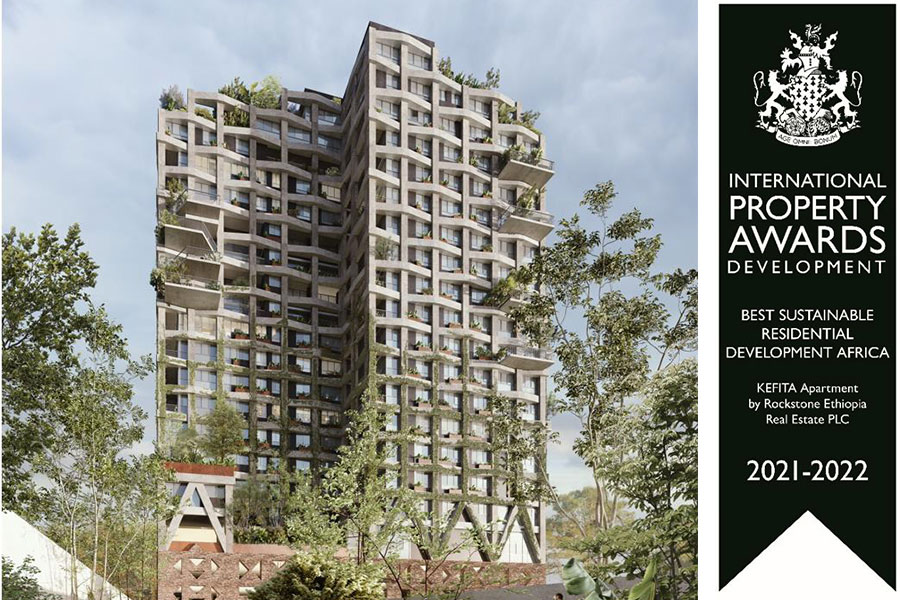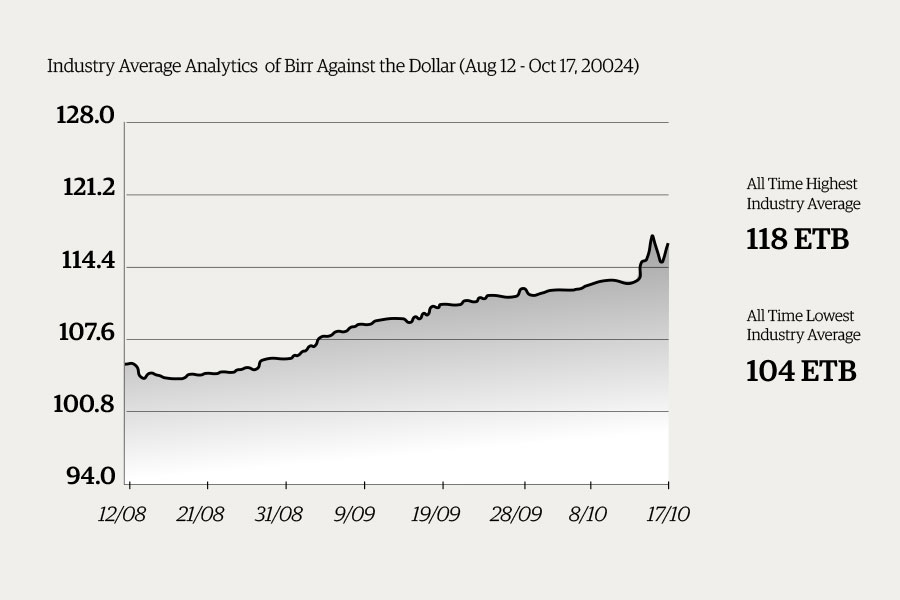
Radar | Jun 12,2021
May 25 , 2024
By Bjorn Lomborg
The shift toward climate finance is contentious in regions where electricity consumption per person is less than that of a refrigerator in developed nations. Access to affordable and reliable energy is critical for industrialisation and economic growth in Africa. The AfDB's focus on climate over development may impede progress in these areas, affecting millions, argues Bjorn Lomborg (PhD), president of the Copenhagen Consensus, a visiting fellow at Stanford University's Hoover Institution.
The world's development institutions are increasingly turning away from poverty-related ills like hunger, infectious disease and illiteracy — the challenges still facing most people across the planet. An unholy alliance of green activists and climate-anxious politicians has pushed them to divert more resources to climate policies, which typically deliver fewer benefits. Sadly, even the African Development Bank (AfDB), meeting in Nairobi this week is putting climate policy ahead of core development issues.
Its President, Akinwumi Adesina (PhD), recently declared that the Bank had set a target to devote 40pc of its total financing to climate finance but had exceeded this target consistently for three years, with close to 55pc of funding going to the climate in 2023. That resource will not be spent directly and effectively on poverty. It is the latest proof of what research has already shown: development funding is being raided for climate spending.
Since the AfDB does enormous good in many of its development policies, the loss is only greater when these are replaced by low-efficiency or inefficient climate programs.
A recent report by the "Group of 20" advocated for the AfDB, World Bank, and other development organisations to push for an additional three trillion dollars in annual spending, with most of it directed toward climate policy. Almost as an afterthought, the G20's background report suggests that a smaller amount of money should go to everything else necessary, like schooling, health, and food. They have it entirely backwards.
Across Africa and the low and lower-middle-income countries, five million children die each year before their fifth birthday, and almost a billion people do not get enough to eat. Over two billion people have to cook and keep warm with polluting fuels such as dung and wood, which shorten their lifespans. Although most young kids are in school, education is so dismal that most children in low and lower-middle-income countries will remain functionally illiterate.
Opportunity is restricted, in particular, by a lack of the cheap and plentiful energy that allowed rich nations to develop. In Africa, electricity is so rare that total consumption per person is often less than what one refrigerator uses. This absence of energy access impedes industrialisation and growth across sectors. Industrialisation and economic growth are not possible without it—case in point: the rich world, on average, has 530 tractors per 10,000 acres, while the poorer parts of Africa have less than one.
Moves by the AfDB and other development institutions like the World Bank to divert more spending to climate projects are deeply misguided. Economic research shows that cutting CO and adaptation deliver lower benefits than efficient development policies. Scenarios from the United Nations' climate panel of scientists show that the average global income, and especially the average African income, will dramatically improve over the next century — and that climate change will not reverse progress.
The UN expects average global incomes to increase 3.5-fold by 2100. The only climate economist to win the Nobel Prize finds that unmitigated climate change means incomes will instead 'merely' increase 3.34 times.
Climate activists argue that poverty and climate change are inextricably linked. Yet, research repeatedly shows that spending on core development priorities would help much more and faster per dollar spent than putting funds toward climate. Prioritised and effective development investment can dramatically improve lives right now and make poorer countries more resilient against challenges exacerbated by climate change.
By contrast, even drastic emission reductions will not deliver noticeably different outcomes for a generation or more.
Development institutions should not ignore climate change. But, it is a problem that will be solved by substantial investment in research and development to make green energy genuinely competitive with fossil fuels, at a price point that even poorer countries in Africa can afford. Spending vast sums on climate projects in the meantime is ineffective at best and virtue signalling at worst.
Since its inception, the African Development Bank has been a powerful and respected voice for the Global South on the world stage. Instead of joining the chorus of elite and wealthy country campaigners that would prioritise climate over development, the Bank could use its voice to speak for those across Africa without influence, and help ensure that more global funds are directed first to today's most urgent problems.
PUBLISHED ON
May 25,2024 [ VOL
25 , NO
1256]


Radar | Jun 12,2021

Agenda | Oct 13,2024

Commentaries | Jun 12,2021

Radar | Sep 10,2022

Fortune News | Jul 01,2023

Radar | Aug 22,2020

View From Arada | Dec 16,2023

Sponsored Contents | Mar 28,2022

Editorial | Jun 21,2025

Money Market Watch | Oct 20,2024

Photo Gallery | 175379 Views | May 06,2019

Photo Gallery | 165599 Views | Apr 26,2019

Photo Gallery | 155930 Views | Oct 06,2021

My Opinion | 136814 Views | Aug 14,2021

Dec 22 , 2024 . By TIZITA SHEWAFERAW
Charged with transforming colossal state-owned enterprises into modern and competitiv...

Aug 18 , 2024 . By AKSAH ITALO
Although predictable Yonas Zerihun's job in the ride-hailing service is not immune to...

Jul 28 , 2024 . By TIZITA SHEWAFERAW
Unhabitual, perhaps too many, Samuel Gebreyohannes, 38, used to occasionally enjoy a couple of beers at breakfast. However, he recently swit...

Jul 13 , 2024 . By AKSAH ITALO
Investors who rely on tractors, trucks, and field vehicles for commuting, transporting commodities, and f...

Oct 18 , 2025
The political establishment, notably the ruling party and its top brass, has become p...

Oct 11 , 2025
Ladislas Farago, a roving Associated Press (AP) correspondent, arrived in Ethiopia in...

Oct 4 , 2025
Eyob Tekalegn (PhD) had been in the Governor's chair for only weeks when, on Septembe...

Sep 27 , 2025
Four years into an experiment with “shock therapy” in education, the national moo...

Oct 18 , 2025 . By NAHOM AYELE
In a sweeping reform that upends nearly a decade of uniform health insurance contribu...

Oct 18 , 2025 . By BEZAWIT HULUAGER
A bill that could transform the nutritional state sits in a limbo, even as the countr...

Oct 18 , 2025 . By SURAFEL MULUGETA
A long-planned directive to curb carbon emissions from fossil-fuel-powered vehicles h...

Oct 18 , 2025 . By BEZAWIT HULUAGER
Transaction advisors working with companies that hold over a quarter of a billion Bir...